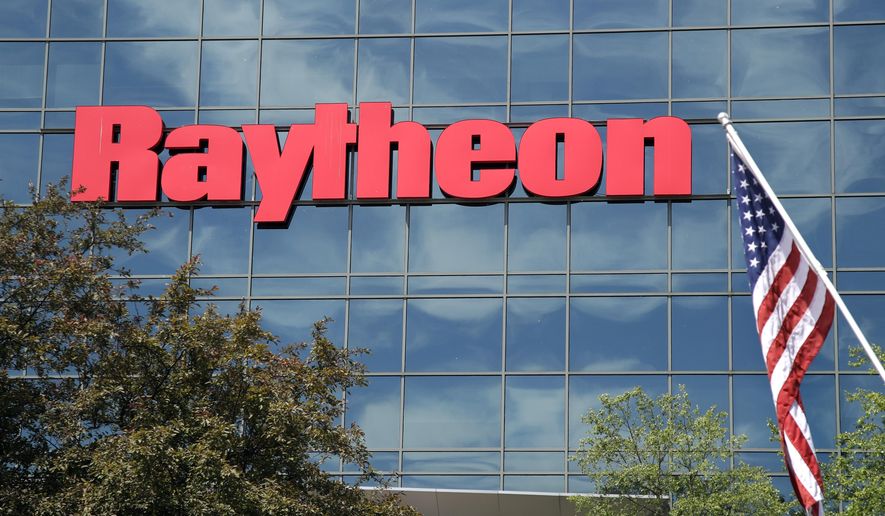Washington’s rush to arm Ukraine is putting U.S. weapons shipment to Taiwan at risk of delay, Taiwanese officials are warning.
The U.S. has agreed to send 250 Stinger surface-to-air missiles in phased installments by 2026. But after surging a quarter of the Pentagon’s stockpile of the shoulder-fired systems to Ukraine, Raytheon Technologies is now facing a significant production backlog of the shoulder-fired system.
“It is true that due to changes in the international situation, there may be a risk of delayed delivery this year of the portable Stinger missiles,” Chu Wen-wu, deputy head of Taiwan’s army planning department told reporters Tuesday. “The Army will coordinate with the full procurement plan and continue to require the U.S. military to implement it normally in accordance with the contract.”
On Monday, Taiwan’s defense ministry warned of a similar hold-up of 40 M109A6 Paladin self-propelled howitzers, which the U.S. agreed to ship to Taiwan beginning in 2023 as part of a sale finalized in August.
The ministry said that due to a “crowded” production line, the shipment would not be completed until 2026 at the earliest and that it would consider an alternative long-range weapons system.
Pentagon press secretary John Kirby declined on Monday to state whether U.S. shipments of howitzers to Ukraine were to blame for the delay in sending the arms to Taiwan, referring reporters to the State Department.
He said the howitzers provided to Ukraine were drawn from existing inventories.
“That is a different method of providing military articles than what is being provided to Taiwan, and that’s all being done through the State Department,” Mr. Kirby said.
Despite the ongoing war in Ukraine, defense officials in the U.S. still see China as the U.S. military’s “pacing threat,” and some lawmakers and analysts have raised fears that a Chinese invasion of Taiwan may be inching closer.
And the delays in arms shipments to Taiwan highlight concerns raised by lawmakers in recent weeks about the strain Ukraine’s arms shipments are putting on U.S. weapons supplies.
President Biden has authorized $3 billion in security assistance for Ukraine since Russia invaded in late February.
The U.S. has sent 1,400 Stinger anti-aircraft systems, 5,500 Javelin anti-armor systems, and 184,000 artillery rounds to Ukraine since the start of the war on top of 7,500 small arms, 60 million rounds of ammunition, hundreds of armored personnel carriers and 16 Mi-17 helicopters.
Congress has approved $3.5 billion in funding for the Pentagon to replenish its own weapons stores, including Stingers and Javelins, after rushing lethal aid to Ukraine.
But funding is only half of the battle.
Raytheon Technologies CEO Greg Hayes told analysts last week that with limited component parts in its inventory and a production line that has remained dormant for years, ramping up Stinger production is easier said than done.
“We’ve been working with the [Department of Defense] for the last couple of weeks,” Mr. Hayes said during Tuesday’s first-quarter earnings call. “We’re actively trying to resource some of the material. But, unfortunately, DOD hasn’t bought a Stinger in about 18 years and some of the components are no longer commercially available.”
Lawmakers began sounding the alarm over the Pentagon’s dwindling Stinger arsenal soon after the U.S. began sending arms to Ukraine. In a letter to Secretary of Defense Lloyd Austin and Chairman of the Joint Chiefs of Staff Gen. Mark Milley in March, House Armed Services Committee Chairman Adam Smith, Washington Democrat, and ranking Republican Rep. Mike Rogers of Alabama noted the “apparent absence of the Department of Defense plan” to replenish the U.S. stockpile of Stingers sent to Ukraine.
“We believe this is a matter of the highest urgency,” the lawmakers wrote.
Sen. Richard Blumenthal, Connecticut Democrat, said last week that it could take more than two years to replenish the U.S. supply of Javelins and called on President Biden to invoke the Defense Production Act to quickly backfill the arsenal before it is too late.
“The cupboard is empty, or it will be very, very shortly unless the president invokes the Defense Production Act to provide that demand signal on an expedited basis,” Mr. Blumenthal said.
• Joseph Clark can be reached at jclark@washingtontimes.com.




Please read our comment policy before commenting.